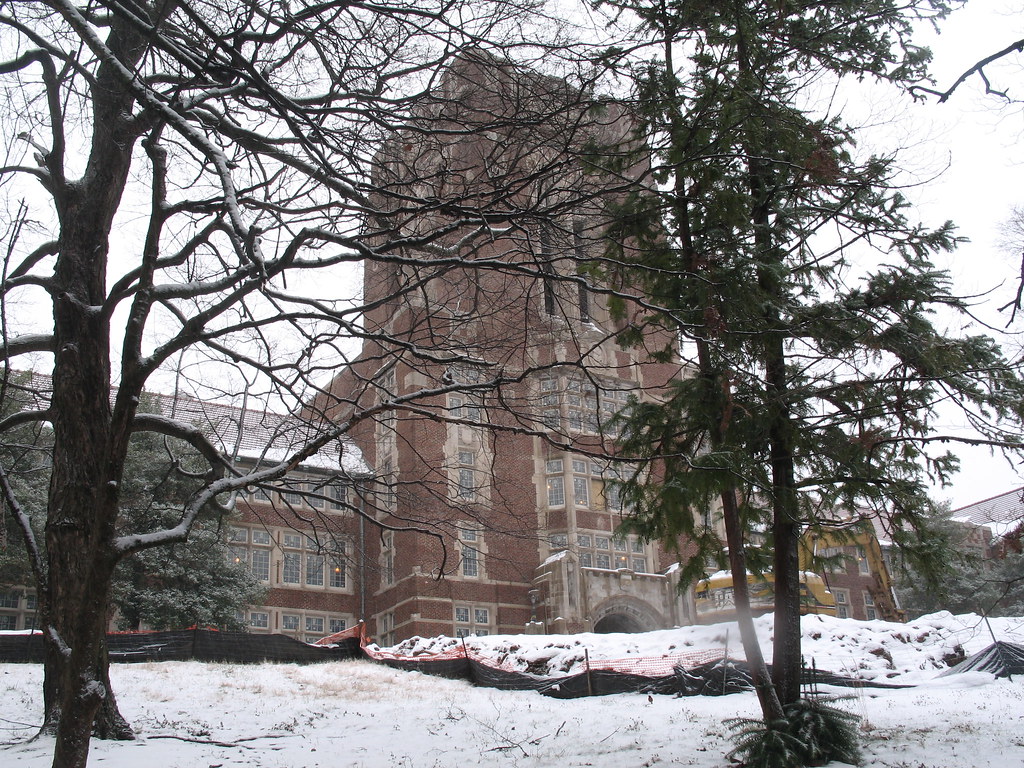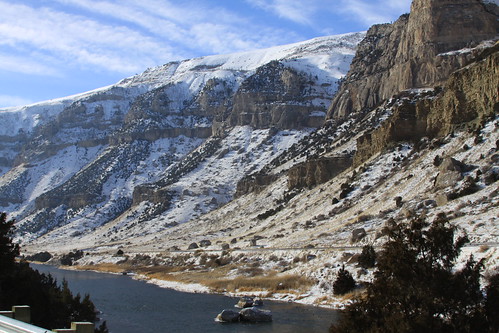 Well, we were warned when the New Orleans Saints made it to the Super Bowl that Hades must have frozen over. Well, sure enough, it's happened! We had a rather severe storm blow over our heads here in Appalachia last weekend, and I was treated to a wonderful, sloppy, wet weekend with four inches of snow. So, to break up the Wyoming monotony a little, I went out with my camera and got a few pictures of a real winter day in the American South for you.
Well, we were warned when the New Orleans Saints made it to the Super Bowl that Hades must have frozen over. Well, sure enough, it's happened! We had a rather severe storm blow over our heads here in Appalachia last weekend, and I was treated to a wonderful, sloppy, wet weekend with four inches of snow. So, to break up the Wyoming monotony a little, I went out with my camera and got a few pictures of a real winter day in the American South for you.I had an absolute riot-- there were undergraduates everywhere doing everything from building snowmen in the quad to snowball fights to sledding down the main hill on our campus on cardboard and storage box lids. Most of the town had to shut down for the weekend due to the slippery conditions, which meant, as a Wyoming driver, I had the roads almost entirely to myself.
The statue you see here at the left is the campus's main symbol, called the Torchbearer, ablaze and surrounded by snow. The heat from the torch kept the snow from building up on the statue, but it also meant that he had a drippy nose for most of the afternoon.
This is a picture taken outside my college's library of the snow on a few early-blooming flowers. It was a little sad this morning-- the temperature was below freezing last night, and most of the flowers were already frost-struck and turning brown.
Things were far from business as usual up at the main part of campus. Our "Old Main," if you will, pictured here, is still under renovations and currently sits empty. Nevertheless, perched on top the highest hill downtown and surrounded by snow, she makes for a lovely sight.
 At the base of "The Hill," as we call it, other shenanigans were popping up. A small group of students were sledding down the hill probably for the first time in several years. One or two people, like these girls, had an honest-to-goodness plastic sled to running down the hill. Others were grabbing construction debris from the renovation project-- like steel signs and industrial cardboard-- and running down the hill on them at breakneck speed, dumping themselves right in the middle of a bus lane (which, naturally, wasn't running.) I didn't have a sled, but I had a lot of fun watching anyhow!
At the base of "The Hill," as we call it, other shenanigans were popping up. A small group of students were sledding down the hill probably for the first time in several years. One or two people, like these girls, had an honest-to-goodness plastic sled to running down the hill. Others were grabbing construction debris from the renovation project-- like steel signs and industrial cardboard-- and running down the hill on them at breakneck speed, dumping themselves right in the middle of a bus lane (which, naturally, wasn't running.) I didn't have a sled, but I had a lot of fun watching anyhow! So, that's how we all spent our weekend here in the South. If you click on any of the images, you'll be directed to my Flickr photostream where you can see the other pictures I took. As for me, now I'm crossing my fingers, hoping that the Saints win the Super Bowl-- I figure that has to be worth at least a foot of good, heavy snowfall, wouldn't you?













